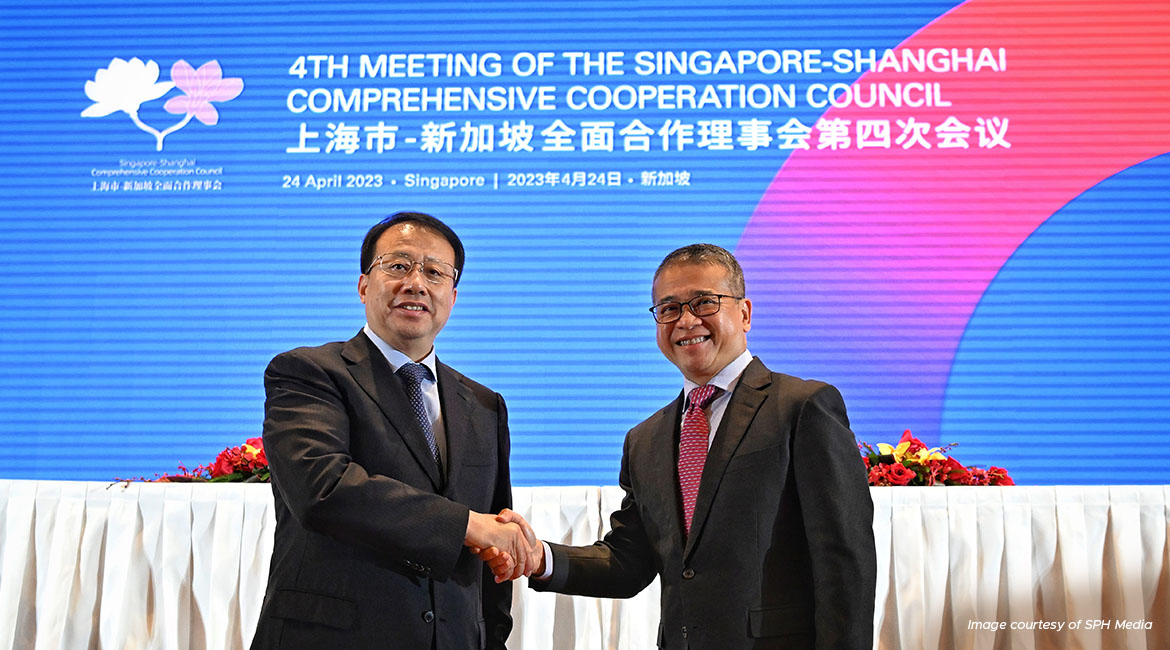Under the auspices of the fourth Singapore-Shanghai Comprehensive Cooperation Council (SSCCC), companies from both cities came together on Monday in the first physical meeting held since the start of the Covid-19 pandemic to ink fresh deals that would seed the next batch of investments.
A record 15 memorandums of understanding (MOUs) were signed between Singapore and Shanghai at the event. They involved businesses in financial services, technology and innovation, as well as those focusing on the digital economy.
Among these was one signed by the Infocomm Media Development Authority, which sought to augment cooperation in all things digital, including connectivity, utilities and innovation, with the Shanghai Municipal Commission of Economy and Informatization.
The Maritime and Port Authority of Singapore and the Shanghai Maritime University extended an agreement to support talent, professional and academic exchange between Singapore and China in the maritime sector.
Another MOU involved an exchange programme for lawyers from both cities, inked by Singapore’s Ministry of Law and the Law Society in conjunction with their Shanghai counterparts.
Another signatory was Singapore’s OCBC Bank, which tied up with Chinese financial services provider UnionPay International.
OCBC division Head of Global Consumer Financial Services Sunny Quek said the move to provide the bank’s retail clients with the convenience of using mobile payments in the mainland is an initial step that would lead to other opportunities as it develops its relationship with UnionPay.
Most of the participants at the event agreed that the key attraction of the Shanghai market is its size, which, according to local furniture maker Commune’s Chief Operating Officer Gan Shee Wen, is about four times as large as Singapore’s.
Shanghai is also China’s most populous city and the mainland’s economic centre.
It has the strongest spending power among Chinese cities, with disposable income rising by almost 2 per cent year on year in 2022 to some 84,000 yuan (S$16,250). This growing affluence translates into sustained demand for mid- to high-end goods and services.
An early mover, Commune set up its Shanghai flagship store in December 2021 during the pandemic, and was among an earlier cohort of Singapore investors in the Chinese city.
Locating in Shanghai was also strategic as it gave Commune the ability to recruit and train franchisees at its wholly owned store, while also showcasing the Singapore brand’s products, Mr Gan said.






